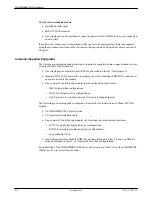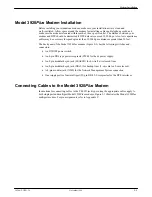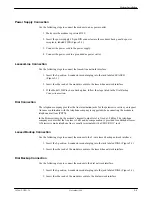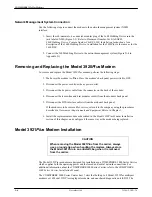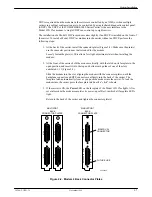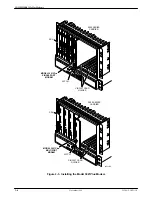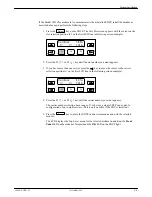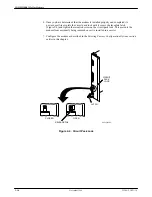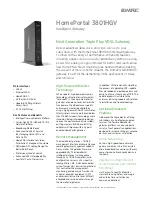
Introduction
1-9
3920-A2-GN31-30
November 1996
Dual-Leased Backup
Dual-Leased Backup is available in all 392xPlus modems. It enables a 2-wire leased line to be
used as the backup facility instead of the normal 2-wire dial line. Plug the leased line into the jack
labeled DIAL on the back panel of the modem (see Figure 2-1 in Chapter 2), and enable the
Dual_Leased_Ln configuration option. (Refer to the Multiport Mode — Leased Line or the
Singleport Mode — Leased Line section in Chapter 4 for configuration options.) Except for
dialing, ring indication, and call progression functions, you control the backup function as if it
were a normal dial backup.
MSD
The Modem Sharing Device (MSD) is only available in 392xPlus multiport modems. It allows
from 2 to 4 physical ports to share a communication channel. When the MUX mode option is set to
TDM/MSD on a tributary, and at least one port has the MSD mode setting enabled, then MSD is
enabled. For more information, refer to the Multiport Mode section of Chapter 4 for configuration
options or the Point-to-Point MSD and Multipoint MSD sample configurations in Appendix G.
When MSD mode is enabled:
•
The MSD Control configuration option is added at the end of the Mux Sub-Group.
•
The EIA Port Sub-group includes the RTS Antistream configuration option.
Digital Bridge
The Digital (DTE) Bridge application is only available in 392xPlus multiport modems. It provides
the ability for dial backup of a multipoint configuration by bridging the signal on the digital side of
the FEP-end modems. In this configuration, only two ports (both on the FEP side) are used on the
control and backup modems. Data received on Port 1 is transmitted across the communication link,
as well as looped back out of Port 2. Data received across the communication link and on Port 2 is
sent out of Port 1. For more information, refer to the Multiport Mode section of Chapter 4 or the
Digital Bridging sample configuration in Appendix G for sample configurations.
When the Digital Bridge is enabled, a new menu is present with the following conditions:
•
TDM capability is disabled when DTE Bridge mode is enabled, therefore the rate of Port 1
is forced to run at the line rate.
•
Configuration options are provided for Port 1 only; Port 2 cannot be configured.
•
Ports 3 and 4 are not available.
•
Port-related tests, such as digital loopbacks and Pattern tests, are available for Port 1.
•
DTE Status, Health and Status, and LED control are available for both Ports 1 and 2.
V.34 Modulation
The V.34 modulation capability is available in all 392xPlus modems. In Singleport mode the V.34
modulation is compatible with other vendors’ modems that support the CCITT V.34 modulation.
The two top rates of 31,200 and 33,600 bps (Paradyne), however, only function with other
392xPlus modems. In Multiport mode, the V.34 modulation will not operate at line rates of 31,200,
26,400, and 21,600 bps, and is only compatible with other 392xPlus modems.






















